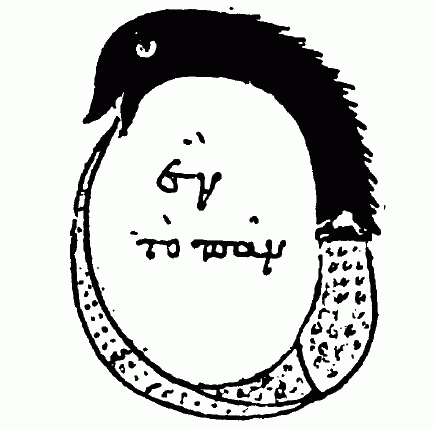Conversations with I and I
Feb 13, 2023 – written by Viwe Joka
Note: This piece was produced as a creative response to the work and ideas presented in ‘Changing same: An ontology of spirit’, an ongoing research engagement concerned with the nature of reality.
One: The truest thing we can say about existence is that we never saw it coming, but we can see it going. An honest account of existence does not happen ‘once upon a time’ or ‘in the beginning’. It happens suddenly. We are the ‘all of a sudden’. Presence emerges spontaneously, and the ultimate genesis is divine surprise. We don’t start, but are startled into process. This is the en-trance: the great initiation into embodiment. In isiXhosa, the body is called ‘umzimba’, which alludes to an abrupt shutting off (mba!) from unboundedness, into the cosmic home (umzi) of space-time. It comes as a shock, and goes as the shade.
Two: How exactly does this shock become the shade?
One: Through our own individual development and the overall unfolding of time and space, we digest our spontaneity through the lens of retrospection. This builds coherency of identity. The catch is that to trail backwards from the ‘now’ to our furthest ‘then’ generates an attachment to historical pain and an obsession with futuristic pleasures.
The future is standing in the way of our presence. Agony grows out of expectation. Our ideas of what must and must not happen burden our capacity to deal with what happens. We have corrupted the impulse of expectation (looking forward) into the debilitating habit of anticipation (awaiting what came before). We perceive our current agony to be in the hands of that which is yet to come.
Our confusion casts a broad shadow in the light of accountability. This is why C.G. Jung’s idea of depth psychology states that every person walks with his or her subconscious trials, and that resolution is an everyday process that comes alive in our engagement with the self and others.
Greek tradition states:
We are born as philautia (self-preservation)
Blindly guided by eros (desire)
In the context of storge (familial bond)
To find philia (affiliation)
Which grows through exercising xenia (dignity)
Fulfilling the cosmic implication of agape (integrity).
There is a Talmudic saying: the only dream worth exploring for the Absolute is the adventure of relativity or, more precisely, relationship. By breaking itself into two – depth and surface – which represent the darkness and the light, mystery constantly makes itself manifest. We know this moment as ‘birth’, where we go from the womb to the world. Essence and process, the will and the way. This flashing, this breaking of the cosmic egg of chaos into order, is the moment an infant emerges into the blinding brilliance of collective ritual. In other words, we pass from the undifferentiated primordial ocean of fluency to the branching roots of figuration.
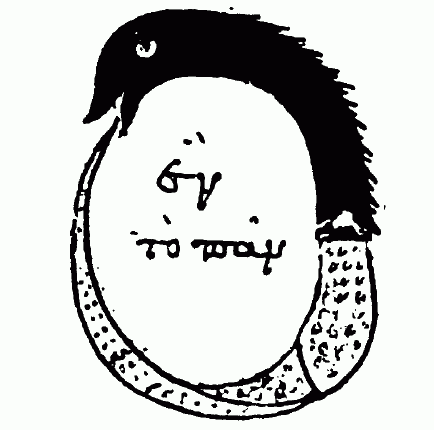
In the oceanic experience, we are formless and void. Coming out of that, we move through the regularities of the life cycle, which adjust us to the rhythmic tendencies of polarity and the undulating, pulsating flow of change (Maat/Dharma/Torah/Tao). We assimilate the functions of form as an internal schema. This process threads our connections with the universal order.
There is a transition from sequence (linear thought) to consequence (circular thought). The line curves into itself, recurring infinitely, an eternal return through the ages. The cell grows limbs in order to act towards an aim; intention is born. This evolution into prospective consciousness shifted us from inspection to expectation, from instinctive feeling (sense) to informed feeling (knowledge).
Two: Does this mean that knowledge subdues the senses?
One: Knowledge is senses that have evolved the capacity for feedback, transforming into new, compounded forms by registering the emotive imprints of their historical cycle. Knowledge is an evolutionary response(ability) which many scholars claim was aggravated by the influence of psychedelics on the human brain.
There is another way of referring to this holy duality: intuition and intelligence. Beneath our carnal perception, there seems to be an inherent motive to survive, to maintain some spiritual coherence in the midst of decay. Many have been tempted to call this instinctive binding principle ‘’God’’, which is apt as a metaphor for the unknown, but dangerously insidious if we contaminate ineffability with the trappings of personhood. Godliness, in its most pragmatic sense, is the willingness to turn this earthly noise into an orchestra of courage and compassion. This reveals an inclination towards our silent origin.
Two: ‘Ludwig Wittgenstein once wrote, ‘Whereof one cannot speak, thereof one must be silent.’ Should we then keep silent, like he suggested?
One: No, it simply reminds us that noise is the unwanted sound, a range of experiences with which we choose not to relate or engage. We are obsessed with silencing the sonic schism of nature from the corruption of luxury. This nervous condition against the hissing scratch of the vinyl’s destination creates a barrier, an unwillingness to feel the immensity of polyrhythmic gnashing. These walls numb us to our divinity. They attempt to straighten the animal.
Against the electric distortion of dying flesh, screaming discord.
Against the rotting funk, breakbeats between footsteps transmitting into sentience,
Stone ageing into rocks
‘N rolling into the mixed apes’ mixtape.
We are the unmistakable legacy of a broadband connection between dissipating structures,
Held hostage by the viral surfacing of our cursed composition.
Noise implies silence.
To negate or exceed the other is to destabilise the rhythm,
To stiffen adaptability.
In this predicament, we can never be free because we confuse limits with boundaries. Limits are the synthetic restrictions humanity oppresses over nature in order to maintain culture. Boundaries are the organic restraints humanity expresses within nature to sustain life. The former is hierarchical dominance (top of the food chain), and the latter is holistic integrity (circle of life). Synthesis means putting things together to resist change. Organisation means putting things together to adapt to change. Limits only occur when culture forgets its boundedness to the balance of nature. When we see ourselves as dominating nature, we start to see the interrelated outcomes of our ecological exploitation as limits to our wellbeing. We misconstrue freedom as a limitless life, instead of seeing and embracing the bonded life.
Two: If we have oppressed ourselves by imposing limits on natural boundaries, how can we ultimately be free?
One: By engaging gracefully with our quantum entanglement. Accepting the implicit flow of life as a negotiation with the unfolding variables.
Freedom unties the old knots to optimise the integrity of our ontological maps. This, in turn, opens up epistemic room to navigate through the local bonds of creed and culture, whilst arriving at the relativity of chance. Even in its etymology, freedom is found and founded upon love. When cut to its core, love is being careful with ourselves and others. We deal with the cost of life by engaging with the bonding freedom of space (i.e. ‘Freespace’).
Two: What do you mean by ‘Freespace’?
One: If mechanistic thought led to artificial intelligence, then ‘Freespace’, as an artistic response, represents ‘Babylon’, the melting of machine into dynamic fluency. It is a rapture of the unlimited frequencies that ‘Void’ modulates as an embodied configuration, broadcasting live from the self. ‘Freespace’ is an experimental emancipation of the aural field from industrial expectations, a balancing of the spectrum between silence and noise.
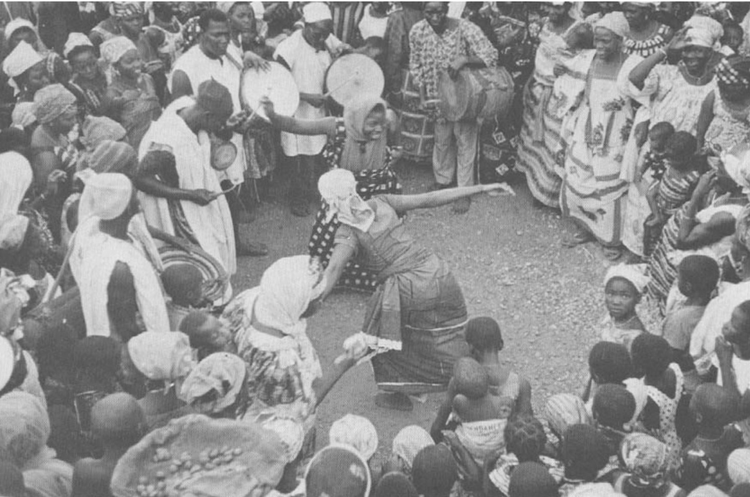
Hidden in the idea of regimented subjugation (domestication) is the idea that we are not at home in the wild. We straighten that which is queer at the whim of our hubris. ‘Freespace’ projects musical randomness that wreaks havoc on the clockwork world. Strapping off the metronomes of ideology, ‘Freespace’ allows our biorhythms to take shape as a symphonic expression of the life-riot
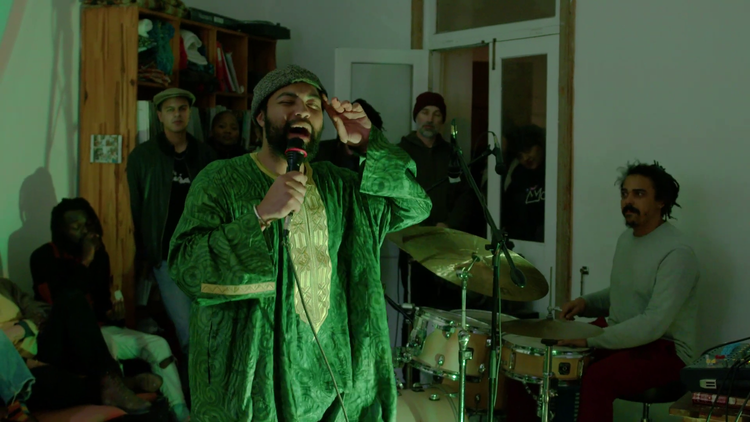
We are, nevertheless, redeemed by the strange attractor towards the apocalypse. The deliverance that is always at play with contraction. The revelation of a genesis and the genesis of a revelation. The psychedelic gospel of ‘turn on, tune in, drop out’.
Two: But then, why sustain? Why should anything go on? Why should it not all end? What is the value in continuing?
One: There are no absolute answers to metaphysical questions, so my best guess is this: we are the conduits of an eternal cycle, an active development of ancestral memory. We are the legacy of what has been preserved and forgotten. This life is not the end, nor the beginning; it is the continuum of the one Great Life constantly rediscovering itself through all of us.
‘New’ and ‘old’ are terms we use to mark change through time. Old is precedence, new is post-cedence. This is the ‘Library of Maximum Everything’.
Two: Does the library ever stop maximising? In other words, do we ever get to a point of knowing it all?
One: No. Development is not a deterministic series of stages, but a heuristic process of improvisations. We are not becoming ‘better’ than we were before; we are meeting new moments in a regular pattern which variates our adaptation in uneven ways. In this context, every action is always appropriate .
Evolution is not linear improvement. The contours of change create an uneven distributive field where the past feeds into the present in relative forms. Industrial thinking gave birth to the myth of optimisation, creating hierarchical developmental frameworks of biological history (Eugenics). We are not heading towards a destination; we are engaging in complex, interrelated loops. History is not an arrow; it is a spiral.

The ‘Library of Maximum Everything’ is the actualisation of a collective history of the ineffable, an archaeology into the infinite databank of ‘Akasha’ (cosmic history) to unearth archetypes of freedom. We decipher the yearning for a better way, an essence encoded into our ancestral design as the ancient romance of old that begs for our retrospection (Sankofa).
It is a vast network of some of our best ideas, from some of our best people in an open web of influences. Most of us are familiar with the phrase ‘knowledge is power’, but for the analogy to apply, knowledge must be a stream (of consciousness) that converts power to a culturally specific context.
As Yasiin Bey writes, ‘’Real power don’t power trip.’
Two: Because of the nature of how modern power is distributed, people get their empowerment from artists, writers, gurus, motivational speakers who flood the market with their particular brand of problem solving. The question becomes, is it truly power if it fits neatly into the context of our disempowerment? Does capitalism, with its emphasis on infinite growth and planned obsolescence, give room for our true sustainability?
One: Everything we have done thus far amounts to the truest lies we have. The only truth is that truth is unknowable. All humans are only capable of representing things as they experience them. Reality is our perceived embodiment, and truth can only be the signification. It is an amalgamation of the most sustainable ideas we have to adapt harmoniously and progressively in this universal body. Through each age, the best of what we know governs us. Our arts, sciences and technologies are signs of the times, sermons to all listening.
To free space from the cost of time, it is essential to lean into freedom as our identity. We must adopt relativity as an integrity that allows us to play the illusion of difference in order to manifest a grand theatre of conflict. We must shift the centre of our logos (meaning) from workers to actors.
Two: How do we differentiate between the ‘actor’ and the ‘worker’?
One: Our forebears stumbled from expression to the gradual oppression of power. This came when Promethean fire shifted the ontology of our spirit from ‘immediatism’ (activity) to ‘perspectivism’ (work). The worker rests on the mythical praxis of future necessity, whilst the actor rests on the magical praxis of present chance. The actor lives by rhythm; the worker lives by regulation. Rhythm is not regulation. The former is the open measure of time, and the latter confines rhythm to monotypes.
The dawn of industry was not a revolution, but a constriction of humanity’s ungovernable curiosity to mechanistic subjugation. We entered into the proverbial matrix, a mainframe of hierarchical data and imperial logic. A transition from the freedom of the ‘nought’ to the captivity of the ‘ought’.
Two: How does Hypocrite fit into all of this?
One: Hidden behind the abstract grasp of our separateness is the ultimate intuition of our singular mystery. It accuses us, figuratively speaking, with the crime of being ‘genuine fakes’ in the court of our latent authenticity. If we are the nominal mystery, then it goes to say that we all embody the character of Hypocrite.
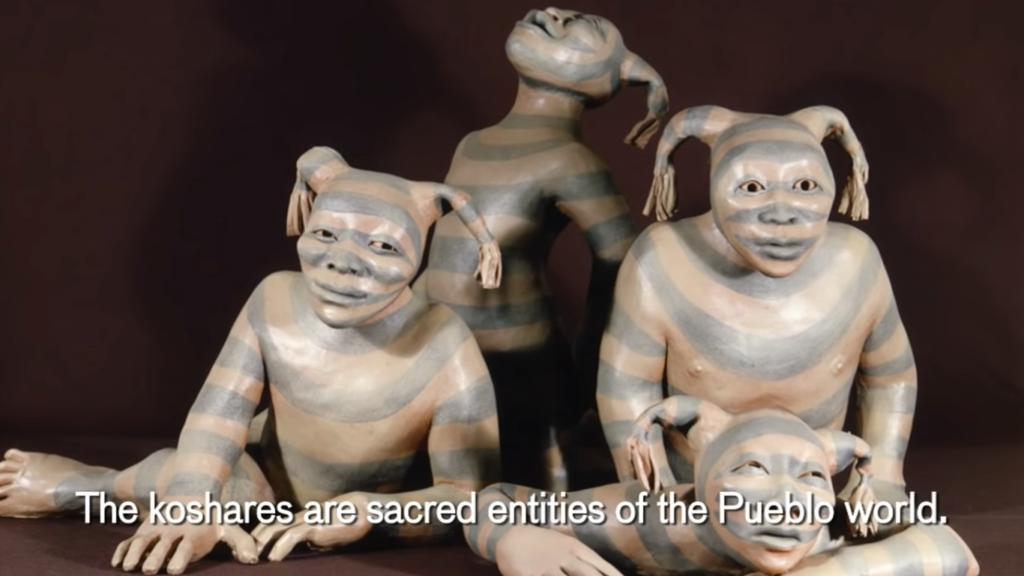
Two: So in other words, God is a hypocrite?
One: Absolutely. The idea of God as the Ultimate Mystery implies that we are all the expression of an essence. We are the ineffable wearing the mask of knowledge; eternity hiding from itself.
In its root, the word hypocrite comes from the Greek ‘hypokrites’ – actor. By conceptualising God as the hypocrite behind all of us, our lives cease to be a quest for the real; instead, they appear as a deception, a colourful fabrication, like Joseph’s Garment. We hide ourselves behind the truest lies we have. Hypocrite is the player, the performer, the artist in the celestial theatre. The mythological dance of Vishnu, a silhouette that swings between absence and presence.
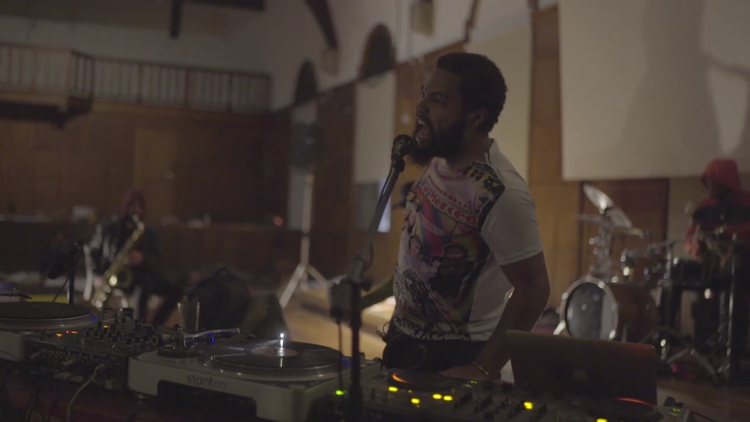
The ‘Hypocrisy Sessions’ are an evolutionary ritual-circle of ecstasy, moving from the trance around the fire to the drag of the strobe light and disco ball. We are born in what hip-hop proverbially calls ‘the place to be’, breathing in intervals that guide the inclination to move. A sonic representation of dreamtime, where song is an open canvas to our own archetypal becoming.
Two: Are you saying that we are ultimately powerless, and we just need to accept this?
One: No, our power is in the realisation that we do not see the world as it is; we see it as we are. Our presence in space-time is rooted in a mystery so deep that it is absent to all conception. The only way to talk about what we can’t know is to define the limits of what is knowable. The only way to posit divinity is by referring to negation. Apophatic Theology, Advaita and other traditions of the negative teach us that supernaturalism is a lack of faith, an attempt to put absolute form to our relative speculation, when the immanent power latent in our dreams, visions and memories is rooted in both uncertainty and reasoning.
Two: In following your line of thought, how do we use reason about matters beyond reason?
One: There are no matters ‘beyond’ reason. Reason implicates the unreasonable; knowledgeability implies ineffability. The plant implies the seed and vice versa. Everything that we can know and see implies the existence of that which we cannot. These things might be distinct, but they are not separate. The difference is that distinction traces the point at which forms become characteristically varied. Separation assumes that explicit differences imply a deeper interior diversity.
The history of our quest to uncover the substratum of being has shown that, beneath the smallest particle-wave, comes a point where everything vanishes into nothingness. Quantum physics has opted to call this irreducible nihilism ‘Dark Energy’ which, conceptually, brings us back to the Kemetic ‘Nu’ and other perennial symbols of the Void. Void is our point of departure. This is why it is the furthest conceivable beginning of any cosmogenesis. Beyond the edge of thought is the unthinkable. Creation is not transcendent; it is immanent.
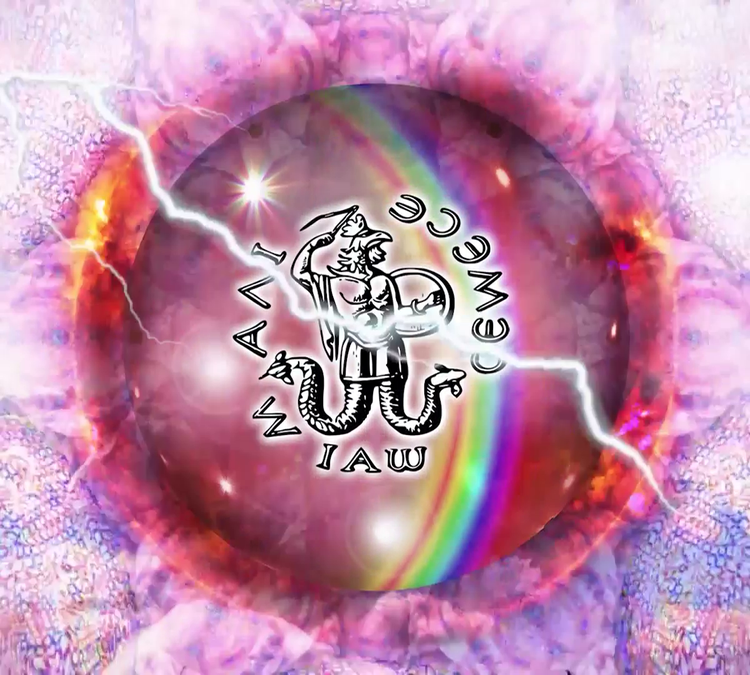
Two: Is this avoiding the Void?
One: No. It embraces it. When we awaken our limits, it gives us more energy to expand the malleable boundaries of what we can know and do. The universe does not have laws; only habits or tendencies that are actively pulsating in the unfolding of reality. To put this in terms of identity, the Void is really what we are, and the vibrations are how we are.
Two: Are you suggesting that the identities on which people base their everyday lives are inferior?
One: Yes, in the face of the Unknown. Everything we know about ourselves is inferior, and that is the good news. This humbles us to a place where we can see our identities as the best tools we have to engage with the self so far. Learning happens when we are open and willing to adopt an empathetic gaze for that which we dislike, especially if others can find reason to like it. Some things teach us where and how we can adjust and adapt; others reaffirm why it is important to keep being how we are, at least until something better comes.
Two: What do you mean by ‘better’?
One: An update to the software of yourself, that which optimises the performance of your ancestral programme. This is not a hierarchical idea of betterment. It is a holistic notion of betterment, which existence distributes appropriately, rather than evenly. Nothing is inappropriate. This might sound like ‘to each his own’. As long as we also remember that ‘each one, teach one’– whatever we regard as ours, we got from somebody else. This is part of the wisdom embedded in the phrase ‘umuntu ngumntu ngabantu’: there is no possession; only transference.
Two: If nothing is inappropriate, is everything just?
One: Not everything is just, but everything is justifiable. Because the worst thing that anybody can do is the best way they know how to cope. If they could do better, they would, and the fact that they do not simply shows that they cannot or choose not to. Either way, that means that they are doing what they feel and perceive is the most optimal response for their wellbeing. Everything is a symptom of a deeper cause. We cannot correct people’s habits; we can only help them recollect their roots and become catalysts that assist in reconfiguring their coping mechanisms. However, only if they are willing.
Two: What of our current mechanisms of reconfiguring trauma, such as religion, psychiatry and so on?
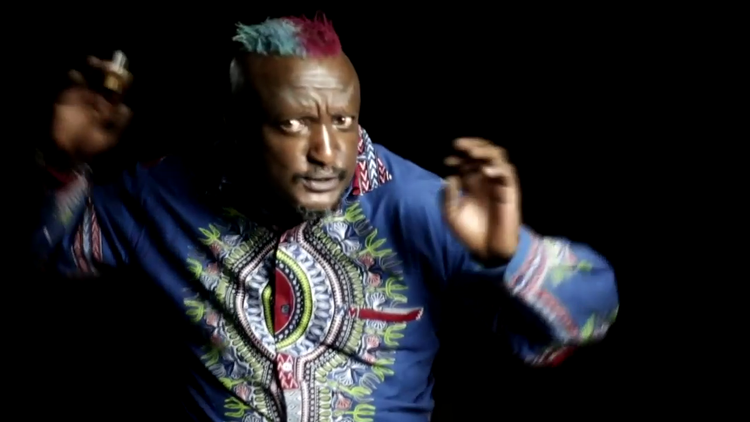
One: They came from distinct times as a response to particular cultural expressions of the same urge; mainly, the question of how we deal with pain. I think this question manifests itself in our age through a dire need to integrate more of the organic in a culture that is becoming increasingly artificial. A living tradition grows by responding to the challenge of the zeitgeist. This is why ideologies that are firmly rooted in the myth of lost great histories or the prospect of great futures struggle to adapt harmoniously to present conditions. I think we need more than historicisms or futurisms; we need ‘immediatisms’ that can hold us reflectively in the current of presence. I think we need to hone into the politics of self-care, which implies delicate and considerate attention to how we treat others.
Two: How do we entrench this politics of self?
One: I do not think there is a prescription for it. Perhaps the closest I can allude to is an ethos, that is, integrity. However, for the sake of offering options, I do think that a set of values could fit into any worldview and aid us in adaptation:
- Ecological Consciousness: Perceiving our actions as a footprint in the greater scheme of our times, and incorporating this into everything we do.
- Liminality: Knowing that we are always in a place between what we can be, and what we have been. Change is the only constant.
- Biomimicry: Modelling our technological advancement on the organic structures and forms that have proven to optimise eco-systems.
- Eclecticism: Allow ourselves to grow beyond our locality and take the best from everyone.
- Post-Structuralism: Live through ideas, not within them.
- Mythopoetic: We create stories in order for the stories to create us. Ours is a feedback loop that reinforces the logic to its own signification.
- Categorical Imperative: To do to others only that which we would accept if it were a universal law.
- Passive Agency: To attach your will to the unknowable, in order to cope with the infinite possibilities of the knowable.
In conclusion, I feel that, as we are incrementally coming out of the water into the ideological grounds of land, we slipped into places that were natural for our development. Patriarchy, bigotry, racism and other forms of oppression were all appropriate responses to the people of their age. However, through time, we are beginning to see just how obsolete ideas are. There is nothing wrong with the world; it is all happening as it could, and if we see our growth as heuristic instead of deterministic, we remain flexible enough to attempt the valiant adjustment to the tensions which necessitate our evolution.
Two: If conflict is an inherent expression of unity, is peace possible? Alternatively, is the universe at war with itself (Jihad?)
One: It is relatively easy to find affinity, but it is profoundly challenging to work through our differences. This, I believe, is the Magnum Opus (The Great Work) represented in alchemy through the Philosopher’s Stone (the crucible that brings all things together). Reconciliation/atonement does not lie in certain principles we hold to be valuable above all others; it manifests through ‘resting’ back into the idea that behind our own assertion is a mystery that eludes us all. Diversity on the surface implies unity in the depths.
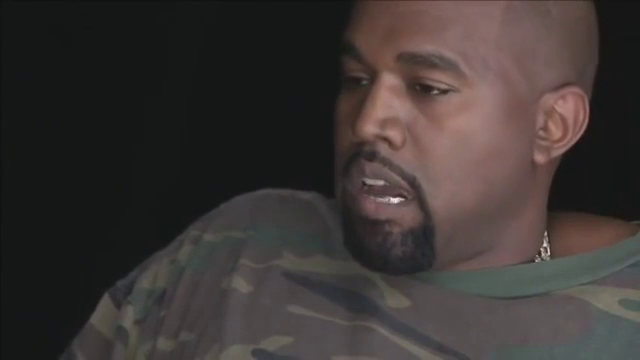
Through differences in their attributes and tributes, the world’s stories carry this conclusion of duality. The perennial message is that we are part free, part bound, to our physical form. Birth centres us within a relation to everything else. The anatomy stands as constant reference to what lies above, beneath, to the left, right, behind and before us. Subsequently, there are two kinds of symbols, which reflect this primordial state, symbols of rhythm and symbols of relation. Every symbol is a variation of either the circle or the cross.
Two: So in other words, we win by surrendering.
One: Yes.
Two: Doesn’t our biological urge to protect ourselves from potential threats go against this?
One: Only if we identify with both aspects of our being and drop the urge to relegate the power of collective fate to some notion of a remote controller. I believe that one approach the world has not tried is disarming the notion that things have to happen a particular kind of way that yields to our advantage. This is not solving problems, but discarding the whole idea that there are problems to begin with. It is seeing our corrosive resistance to diversity released in the favour of contingency.
Caring and solving are not the same thing. Caring is dealing with something as a process (something that could exist). Solving is dealing with something as a problem (something that should not exist). So I dare say, we cannot care for anything if we are trying to solve it. There are no problems; only processes. We cannot change the world, because the world is change.
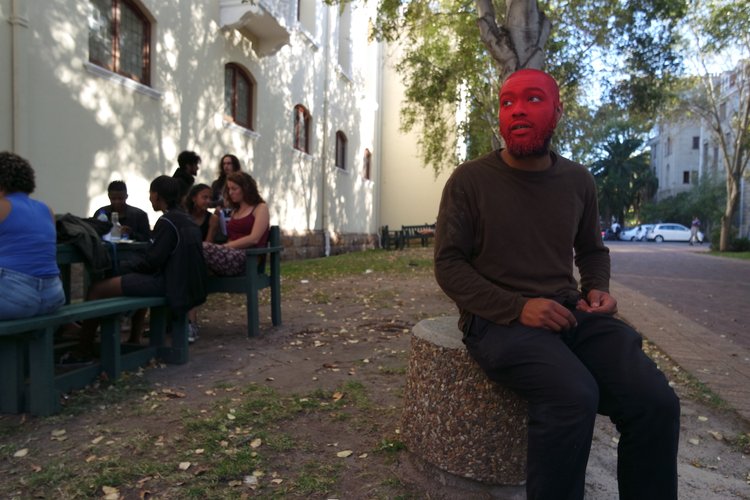
Lastly, if we rest in our essence, we begin to realise that our being is unconditional. We conceptualise embodiment as an illusion (play) that existence mysteriously fabricates through otherness. This en-trance, trick, game and cosmic duplicity opens us up to an improvisational model of the world, whereby we expand our definition of self to encompass the whole, thus changing our role from puppets played by the Grand Controller, to the Player acting out a simulation over which they forfeit control. There is no destiny according to this improvised model. Dynamic interconnectedness actively determines how the bonding principle materialises.
Through this view of the world, we own up to being that which lies under (hypo) choice (crisis). We accept our role as imposters, surreal deceptions of an unknowable authenticity. God is making Godself up as God goes along.
Two: I can vibe with that.
One: You already are, in ways you could not possibly fathom.
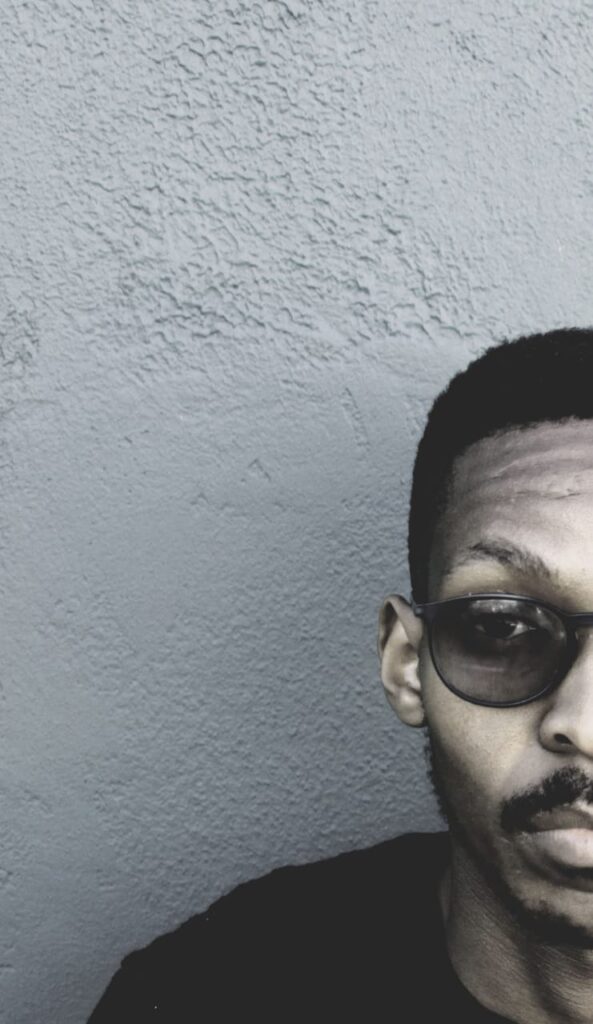
Viwe Joka is a creative writer and visual artist from Gqebhera, Eastern Cape, whose work centers around unearthing sign, design and how we ultimately infer sign-ificance onto the world. He aims to envoke the texture in text, using illustration, prose and poetics as techniques to interrogate the edges of context and culture. His output spans across spoken word traditions to conjure a critical theory inspired by openness, complexity and the delicate dance between nature and artificiality.
